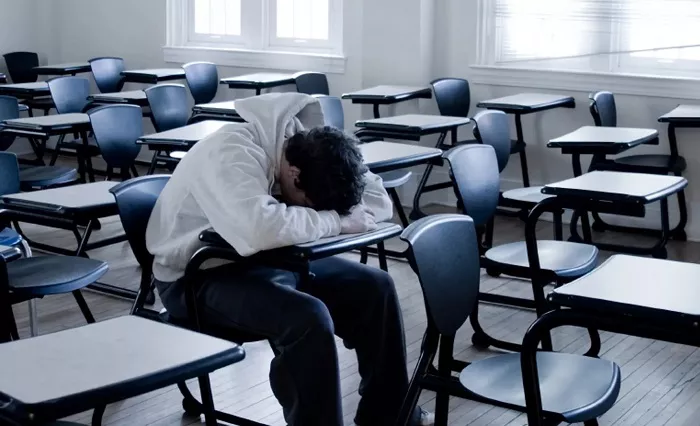Depression is more than just feeling sad—it’s a deep, persistent emotional struggle that can make everyday life feel overwhelming. If you’re reading this, you might be wondering where to turn for support. The first and most important thing to know is that you don’t have to face this alone. Depression is a common but serious condition, and seeking help is the first step toward healing.
This guide will walk you through the best places to go when depressed, from professional treatment options to self-help strategies. Whether you’re looking for immediate crisis support or long-term therapy, understanding your choices can empower you to take action. Let’s explore the resources available to help you regain control of your mental health.
Understanding Depression: Signs and Symptoms
Depression affects everyone differently, but some common signs indicate it’s time to seek help. These symptoms often last for weeks or months and interfere with daily life:
Emotional Symptoms
- Persistent sadness, hopelessness, or emptiness
- Loss of interest in activities you once enjoyed
- Feelings of guilt, worthlessness, or self-blame
- Irritability, frustration, or mood swings
Physical Symptoms
- Chronic fatigue, even after rest
- Changes in sleep (insomnia or excessive sleeping)
- Appetite changes leading to weight loss or gain
- Unexplained aches and pains
Cognitive Symptoms
- Trouble concentrating or making decisions
- Memory problems
- Negative or self-critical thoughts
- Thoughts of death or suicide
If these symptoms sound familiar, it’s important to reach out for support. Depression is treatable, and the sooner you seek help, the better your chances of recovery.
Where to Go When Depressed: Professional Help Options
Therapists and Counselors
Therapy is one of the most effective treatments for depression. Licensed mental health professionals use evidence-based approaches to help you manage symptoms. Common types of therapy include:
Cognitive Behavioral Therapy (CBT): Focuses on changing negative thought patterns.
Psychodynamic Therapy: Explores past experiences and emotional conflicts.
Interpersonal Therapy (IPT): Addresses relationship issues that contribute to depression.
How to Find a Therapist:
- Ask your doctor for a referral
- Search directories like Psychology Today or GoodTherapy
- Use online therapy platforms (BetterHelp, Talkspace)
Psychiatrists
Psychiatrists are medical doctors who specialize in mental health. They can:
- Diagnose depression and rule out other medical conditions
- Prescribe and manage antidepressant medications
- Provide therapy (some psychiatrists offer both medication and counseling)
If your depression is severe or doesn’t improve with therapy alone, a psychiatrist can help determine if medication is right for you.
Support Groups
Connecting with others who understand your struggles can be incredibly healing. Support groups provide a safe space to share experiences and coping strategies.
Types of Support Groups:
- In-person groups (check local hospitals, clinics, or community centers)
- Online communities (Reddit’s r/depression, 7 Cups, Facebook groups)
- Peer-led groups (Depression and Bipolar Support Alliance, NAMI)
Hotlines and Crisis Support
If you’re in immediate distress, crisis hotlines offer free, confidential help 24/7. Some key resources include:
988 Suicide & Crisis Lifeline (U.S.): Call or text 988
Crisis Text Line: Text HOME to 741741
Samaritans (UK): Call 116 123
These services are staffed by trained volunteers who can provide emotional support and guide you to further help.
Primary Care Doctors
Your regular doctor can be a great first step. They can:
- Screen you for depression
- Rule out medical causes (like thyroid issues or vitamin deficiencies)
- Refer you to mental health specialists
Many people start their mental health journey with their primary care physician.
Self-Help Strategies to Manage Depression
While professional help is crucial, self-care can also play a big role in recovery. Here are some strategies to try:
Physical Activity
Exercise releases endorphins, natural mood boosters. Even a short daily walk can make a difference.
Healthy Eating Habits
A balanced diet supports brain function. Focus on whole foods, lean proteins, and omega-3s (found in fish and nuts).
Sleep Hygiene
Poor sleep worsens depression. Try to:
- Keep a consistent sleep schedule
- Avoid screens before bed
- Create a relaxing bedtime routine
Mindfulness and Relaxation Techniques
Meditation, deep breathing, and yoga can reduce stress and improve mood. Apps like Headspace or Calm can guide you.
Social Connection
Isolation fuels depression. Even small social interactions—like calling a friend or joining a club—can help.
Journaling
Writing down your thoughts can provide emotional release and help identify negative patterns.
When to Seek Emergency Help
Some situations require immediate intervention. Go to the nearest emergency room or call a crisis hotline if you:
- Have active thoughts of suicide
- Are making plans to harm yourself
- Experience severe dissociation or hallucinations
- Can’t perform basic self-care (eating, bathing, etc.)
Your safety comes first. Don’t hesitate to reach out for urgent help.
Conclusion
Depression can feel isolating, but help is available. Whether you start with therapy, medication, a support group, or self-care strategies, every small step counts. The most important thing is to take action—whether that’s making an appointment, calling a hotline, or confiding in a trusted friend.
Recovery is possible. You deserve support, and there are people ready to help you through this. Don’t wait until things feel unbearable—reach out today. You don’t have to face depression alone.
By understanding your options, you can make informed decisions about your mental health journey. Remember, seeking help is a sign of strength, not weakness. Take that first step—you’re worth it.
Related topics:
- How Can I Tell If My Teenager Is Depressed?
- Can I Be Depressed and Not Know It?
- Are Depressed People Selfish?


